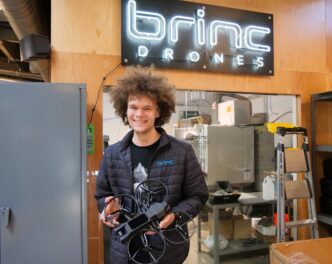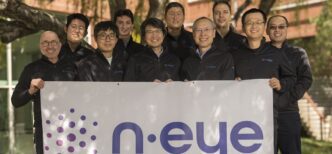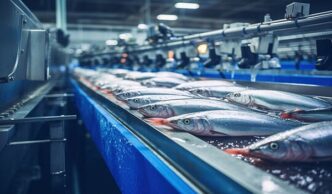Developing a new drug is an uphill battle—taking up to 15 years and often costing between €1.5 and €2 billion. On top of that, nearly 97% of clinical trials fail, wasting time, money, and delaying life-saving treatments. One major reason? Current lab methods can’t fully decode how cells actually respond to drugs. That’s where Dutch techbio startup QurieGen is stepping in, with an ambitious solution designed to change the game.
This Nijmegen-based company, born from Radboud University and co-founded by Dr. Kinga Matuła and Prof. Wilhelm Huck, just secured €2.2 million in pre-seed funding. The round was led by CEE-based investors Tensor Ventures, Lighthouse Ventures, BSV Ventures, Moondust Ventures, and 22 Hor Invest—plus U.S. VC icon Tim Draper of Draper Associates.
QurieGen’s solution? A next-gen platform called QuRIE-seq™, which acts like “Google Maps for cells.” It tracks cell-level changes across mRNA, proteins, and other biomarkers in real time, offering a dynamic and multi-layered view of how individual cells react to specific drugs.
Tackling Drug Development Challenges with AI and Single-Cell Genomics
The startup is aiming straight at the inefficiencies in cancer drug development. Instead of relying on traditional bulk-cell analysis, QurieGen’s platform dives deep into how each cell behaves, allowing researchers to uncover hidden insights like why a drug may work for some patients and not others.
“At the time I was diagnosed as a cancer patient, we were building groundbreaking single-cell tech with pharma collaborators in the Netherlands,” explained co-founder and CEO Dr. Kinga Matuła. “We got our first paid project when a drug approved by the FDA didn’t work as expected. That project—and two more—laid the foundation for QurieGen.”
Her personal experience as both a scientist and cancer survivor helped shape the company’s mission: speed up drug development and make it more patient-focused.
Building the World’s Largest Drug-Cell Interaction Database
The majority of the fresh €2.2M capital will fuel the expansion of QurieGen’s AI platform and help build the world’s largest dataset of drug–cell interactions. Over the next year, the team plans to grow by 50% and ramp up automation of its data pipelines, according to co-founder and COO Maciej Jarząb.
By combining AI, machine learning, and multi-omics data, the platform will allow drug developers to spot precise molecular targets, predict responses, and reduce trial-and-error in drug testing. The ultimate goal? Enable precision medicine where treatments are tailored to each individual’s unique cellular makeup.
Why QuRIE-seq™ Is a Game-Changer
Unlike most tools that focus on just one layer—such as genomics or proteomics—QurieGen’s QuRIE-seq™ simultaneously captures mRNA, membrane proteins, intracellular proteins, and phosphoproteins at the single-cell level. This gives a much richer, real-time snapshot of cellular activity.
More importantly, it “locks in” biology to create dynamic maps of how cells evolve in response to drugs. It’s this time-lapse approach that sets QurieGen apart from legacy systems like those used by 10x Genomics or Fluidigm, which offer only static snapshots.
This multi-layer integration helps explain why a cancer drug may fail, why resistance develops, or why certain side effects appear—offering insights that were previously hidden.
Backed by Pharma Giants and Deeptech VCs
Even in its early days, QurieGen has attracted attention from major pharma players. The startup already collaborates with AstraZeneca’s Acerta Pharma and Johnson & Johnson’s Janssen Pharmaceutica, applying its tech to uncover how drugs really work at the cellular level.
The company’s long-term vision is to develop an integrated AI platform that rapidly suggests new drug therapies—cutting costs and timelines significantly. “We want to move the industry away from trial-and-error and toward a fast, data-driven model of therapeutic discovery,” said Jarząb.
Investor Confidence in a Visionary Founding Team
For investors like Moondust Ventures, the appeal lies in the startup’s fusion of advanced science and transformative potential. “QurieGen’s AI-driven approach to drug discovery could drive breakthroughs in precision medicine,” said Marios Nicolettis, Managing Partner at Moondust Ventures.
Sandra Golbreich, General Partner at BSV Ventures, echoed that sentiment. “Kinga and her team combine world-class scientific expertise with personal resilience and entrepreneurial grit. They’re exactly the kind of deep tech founders we love to back.”
With fresh capital, pharma partnerships, and a personal mission rooted in lived experience, QurieGen is aiming to bring a new level of clarity and speed to the complex world of cancer drug development—one single cell at a time.













